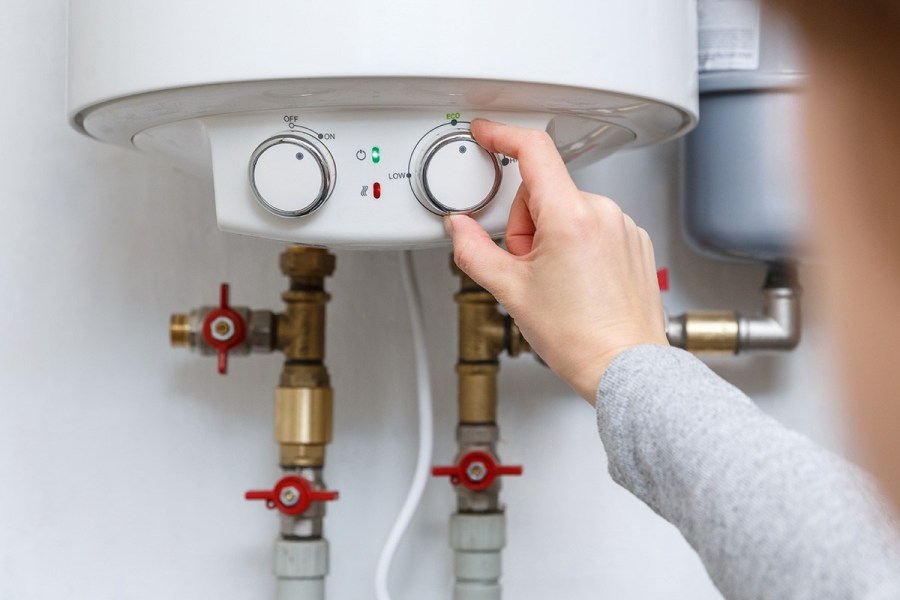Tankless water heaters are a popular choice for homeowners looking to save space, energy, and reduce utility bills. Unlike traditional water heaters, tankless models heat water on demand, offering endless hot water without a bulky tank. However, like any appliance, tankless water heaters may require repairs over time. Whether you’re experiencing inconsistent hot water or no hot water at all, understanding common issues and repair solutions can help you address the problem effectively.
In this article, we’ll cover the most common problems with tankless water heaters, how to troubleshoot them, and when to call a professional for Tankless Water Heater Repair.
Tankless Water Heater Repair (Common Issues)
Inconsistent Hot Water Supply
One of the most common complaints with tankless water heaters is the lack of a steady hot water supply. You may notice fluctuations in temperature, or it may suddenly turn cold during use. This issue is often caused by:
Clogged filters
Over time, sediment can build up in the filters, restricting water flow and affecting temperature consistency.
Inadequate flow rate
If the water flow rate is too high for the unit’s capacity, it may not heat the water sufficiently, leading to inconsistent temperatures.
Repair Tip
Regularly clean or replace the filters and ensure the water flow rate aligns with the manufacturer’s specifications. You may need a professional to check the unit’s internal components to ensure everything is functioning properly.
Water Heater Isn’t Heating Water
If your tankless water heater isn’t heating water at all, it could be due to several issues:
Electrical problems
A tripped circuit breaker or faulty wiring may prevent the heater from turning on.
Malfunctioning sensors
Tankless water heaters rely on sensors to detect water temperature. If these sensors are faulty or dirty, they may fail to signal the unit to heat the water.
Gas supply issues
A gas valve malfunction or insufficient gas pressure may prevent the heater from operating.
Repair Tip
First, check the circuit breaker and wiring. If electrical problems aren’t the issue, inspect the sensors and gas supply for potential problems. If you’re unsure, it’s best to contact a professional technician to diagnose and repair the issue.
Low Water Pressure
Low water pressure can be frustrating and is often caused by mineral build-up or clogs in the system. If your tankless water heater isn’t delivering adequate pressure, consider these possibilities:
Scale build-up
Hard water minerals can accumulate inside the heat exchanger, restricting water flow and reducing pressure.
Clogged inlet filters
The filters at the water inlet may become clogged over time, resulting in lower water pressure.
Repair Tip
Perform a descaling procedure to remove any build-up in the system. Use a descaling solution designed for tankless water heaters to clean the unit and restore water pressure.
Error Codes on the Display Panel
Many modern tankless water heaters come with digital displays that show error codes when something goes wrong. These codes can indicate a variety of problems, including:
Overheating
An overheat error code may appear if the unit is working harder than usual to heat water.
Flame failure
This error occurs in gas-powered units if the flame goes out or is not igniting properly.
Electrical issues
Some units may show error codes if there’s a power failure or malfunction in the wiring.
Repair Tip
Refer to the user manual to decode the error message. If the error code suggests a serious issue, contact a professional to inspect and repair your tankless water heater.
Strange Noises from the Heater
If your tankless water heater is making unusual noises, it could be due to:
Mineral deposits
Scale build-up inside the unit can cause the heater to emit popping or banging sounds as the minerals create air pockets.
Overheating
If the unit is overheating, it may produce hissing or gurgling noises.
Repair Tip
Descale the unit to remove mineral deposits and ensure the unit is functioning efficiently. If overheating is the issue, it’s important to check the thermostat settings and ensure proper ventilation.
Frequent Shut-Offs
Tankless water heaters may shut off unexpectedly if they are overworked or malfunctioning. This can happen for a variety of reasons:
Overuse
If you’re using too many water outlets at once, the unit may shut off due to the strain.
Thermostat issues
A malfunctioning thermostat may cause the unit to shut down to prevent overheating.
Air supply or venting problems
Gas-powered units may turn off if there’s inadequate ventilation or airflow.
Repair Tip
Reduce water usage during peak hours to prevent overloading the system. If the issue persists, check the thermostat and venting system for any obstructions.
When to Call a Professional
While there are many common problems that homeowners can troubleshoot, some issues require professional expertise. If you’ve tried basic repairs and the problem persists, it’s time to call in a technician. A professional plumber or HVAC specialist can provide thorough inspections, diagnose complex issues, and ensure your tankless water heater is repaired correctly.
Conclusion
Tankless water heaters offer numerous benefits, but like any appliance, they require regular maintenance and occasional repairs. By understanding the most common issues and knowing how to address them, you can keep your system running smoothly for years to come. Always follow the manufacturer’s guidelines, perform routine maintenance, and don’t hesitate to seek professional help when needed.


Comment here